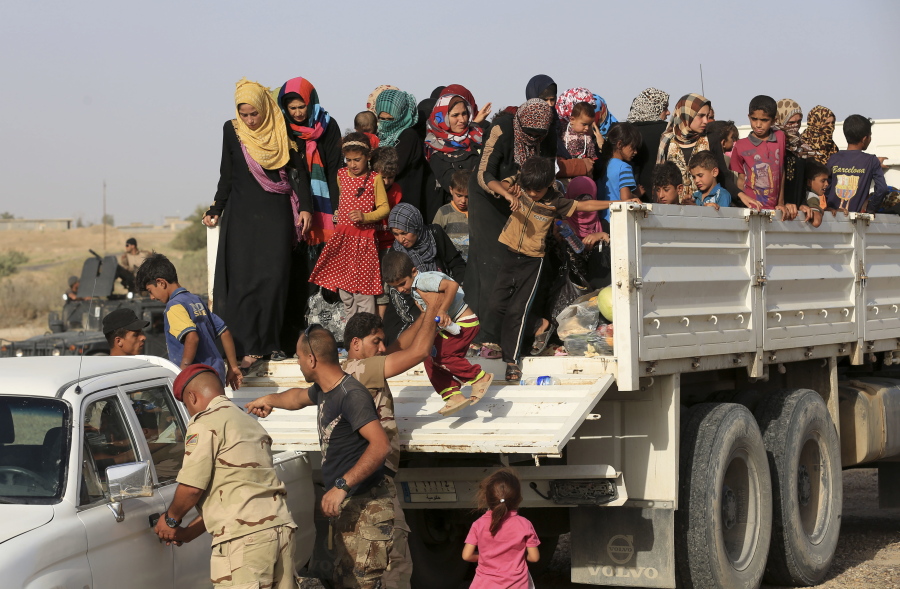CAMP TARIQ, Iraq — The battle for Fallujah is shaping up to be unlike any of the other assaults in the Iraqi military’s town-by-town war with the Islamic State group.
In the nearly two weeks since the operation began, airstrikes have been used sparingly, Shiite militias have so far been kept to the perimeter, and the initial advance on the symbolically important town has been slow.
U.S.-trained Iraqi counterterrorism forces, wary of coming street battles in the city, are already facing fierce resistance on the outskirts from well-entrenched militants. Those fighters are believed to include many foreign jihadis who are considered better-trained that the ones in towns that have been retaken in recent months.
In Ramadi — the last major victory for Iraqi forces against the Islamic State — many of the militants were able to flee to other strongholds along the Euphrates River valley. Now, all of that territory has been cleared, and the extremists have no escape route from Fallujah.
That suggests a long fight for the city less than an hour’s drive west of Baghdad.
While Fallujah is smaller in area than Ramadi, an estimated 50,000 people are trapped in the city, twice as many as were in Ramadi when it was recaptured.
Aid groups say about 1,000 families have managed to flee the outskirts of Fallujah since the operation began May 22. But the Norwegian Refugee Council, an international humanitarian group that does extensive work in Iraq’s Anbar province, says none of the civilians trapped in the center of the city have made it out.
Residents have told The Associated Press that Islamic State fighters tightly control all roads in and out of the city and have threatened to kill anyone who tries to escape.
“There is a clear difference between the Fallujah and Ramadi operations,” said Iraqi military Brig. Haider al-Obeidi.
The terrain is a challenge, he said, because the outskirts are dotted with orchards and irrigation canals that give Islamic State fighters working in small mobile units an advantage over the slow-moving convoys of armored vehicles
The fighters his men are encountering are better trained than those in pervious battles, al-Obeidi said.
Military commanders are reporting larger numbers of foreign fighters in Fallujah.
“Their snipers are smart, they hit essential parts of the bulldozers’ engines and Humvees’ wheels,” he said. Repairing them takes time and slows advances, and the forces have not received any new weaponry or additional training that would help, al-Obeidi said.
The troops have few options beyond trying to protect their units from Islamic State counterattacks, he said. As streets are cleared, they plan to erect roadblocks to guard against suicide car bombs, one of the deadliest Islamic State tactics.
Iraqi forces are continuing to move forward, snaking through the desert on Fallujah’s southern edge. Smoke rose Friday from a cluster of factories and industrial buildings in the area.




